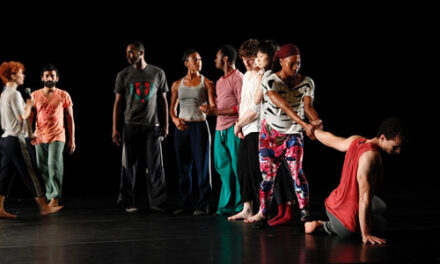We’ve been high on Greg McCallum for a long time – back to Spectator days, indeed. He’s a Carrboro-based pianist who’s made a fine career without the benefit of formal ties to UNC – a feat few other Orange County artists have managed. It’s cost him ready access to “free” performance halls, but on the other hand, he’s not been constrained to publish-or-perish or to undertake assignments that don’t appeal to him, personally or artistically. He’s managed to make his own way, and apparently he’s thrived, using various area schools and churches for his presentations and pursuing his passions – musical and otherwise – at his own pace. Along the way, he’s grown no moss. As an artist, he’s among our very best players, his programs are to die for, his CDs – there are three of ’em, with more on the way – are superior products, technically and musically, too, and his heart is immense, so he does all sorts of things pro bono. Examples of this are his last three recitals – his Weill Hall (NYC) debut and two NC concerts; the proceeds from them were contributed to the support of a singularly noteworthy non-profit group.
At the United Church of Chapel Hill, on the stunningly beautiful afternoon of April 10, McCallum played his Yamaha grand – the one he wants, eventually, to take to every county in NC, to give recitals and to engage local players and to teach and to mentor and to spread his own special gospel of music as a powerful and healing and uniting force in our lives. The occasion was the third and last rendition of the program with which he made that aforementioned Weill Hall debut last month. Those who don’t recognize that name should know that it’s the gem-like little auditorium in the building that is known throughout the world as Carnegie Hall.
The program, titled “World Quilt for Peace,” was pure McCallum, which is to say that it was varied, diverse, richly rewarding, and thematically linked. The intent was to present “…a tapestry of piano pieces… show[ing] the influence of folk music and diverse cultures from… countries [that have] recently suffered from devastating terrorist attacks.”
He began with three marvelously contrasted Scarlatti sonatas – two in A and one in d minor. The first one sparkled, and the second was an other-worldly thing of exceptional beauty. Two Chopin mazurkas and two of Grieg’s many Lyric Pieces led happily to Debussy’s magical Estampes, the three-part suite that salutes, in turn Java and Japan and then Spain, before ending up in France. (McCallum quoted Granados’ comment that “Soirée dans Grenade,” by a Frenchman who never set foot in Spain, is the most “Spanish” piece in captivity.)
Part two was devoted to still more wide-ranging fare – a dark little Russian fairy-tale-in-music by Medtner, one of Bartók’s Roumanian dances, a gaucho dance by Ginastera, and Gottschalk’s saucy “March des Gibraros,” which could have inspired Ives’ “Putnam’s Camp, but probably didn’t.
At this point, McCallum introduced the next two works – Eitan Steinberg’s “Angel Steps” and Still’s “Summerland,” from Three Visions. There was method in the intro, since one depicts butterflies’ first flights and an angel’s first steps – it was good, too, that he told us that the angel on the cover of the program was by Steinberg’s spouse – and the other is said to be an image of what Still, our Dean of Afro-American Composers, thought heaven would be like.
He then introduced David Potorti, of September 11th Families for Peaceful Tomorrows, which is putting together a 2006 “International Conference of Victims of Terrorism and War,” to which donations for admission to this concert were given. Potorti in turn introduced Fr. Michael Lapsley, SSM, a New Zealander living in South Africa who is Director of the Institute for Healing of Memories. These folks know whereof they speak – as a result of his anti-Apartheid activities, Lapsley’s hands were blown off by a letter bomb, said to have been sent by the South African government within weeks of the release of Nelson Mandela from prison, yet he’s reconciled and turned his experience into a positive and powerful force for change in our society.
With these quite awesome and humbling introductions, McCallum’s performances took on lives of their own, conveying at once peace and consolation and hope, and the two celestial pieces were reverently received.
The concert ended with a work that may be McCallum’s signature song, Frederic Rzewski’s “Winnsboro Cotton Mill Blues.” The pianist rolled up his sleeves as he talked about it and played some short examples – millworkers are just one group whose cause he has championed. It’s a humdinger of a piece that sounds like one would imagine a deafening mill going full tilt must have been like. It brought the substantial audience to its feet in a lengthy and fervent demonstration of admiration and gratitude.
It may be worth noting that McCallum is a superb player whose work invariably touches the minds and souls of his listeners. There’s a human being beneath his technical prowess, and that humanity is reflected in nearly everything he undertakes. It is heartening, therefore, to report that he’s probably never played with greater assurance or with more secure command. It was quite an afternoon, one in which he richly rewarded his listeners and they, in turn, benefited a most worthy cause while concurrently enjoying a superb and unusual program. It doesn’t get any better than this.
McCallum is heading to St. Croix for concerts later this week, taking his music to the masses. He’ll be back, and he’s worth traveling to hear when his next programs are announced.











